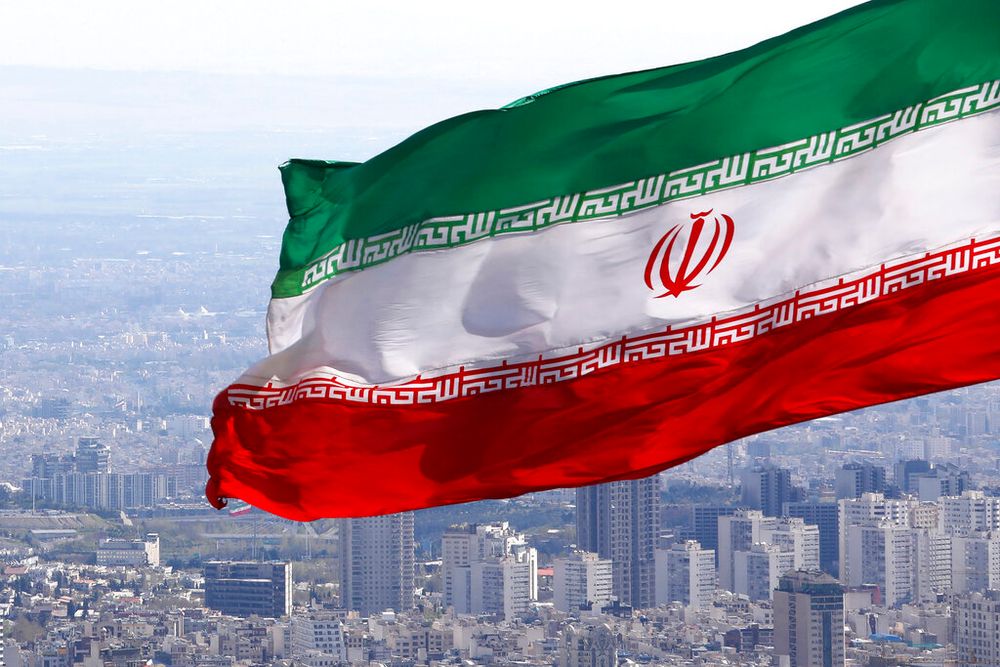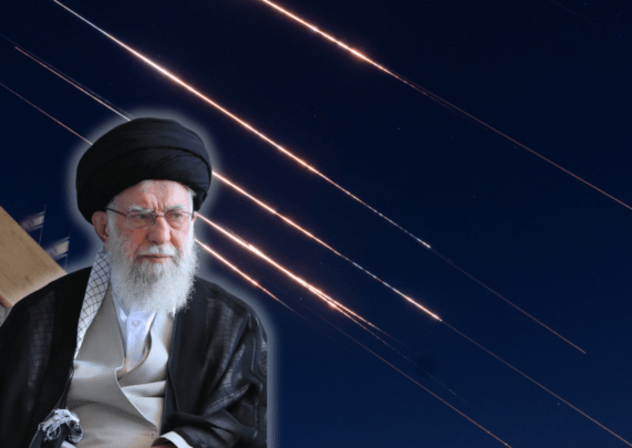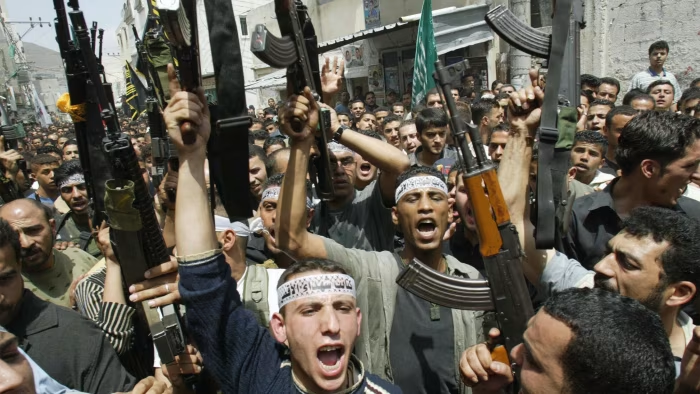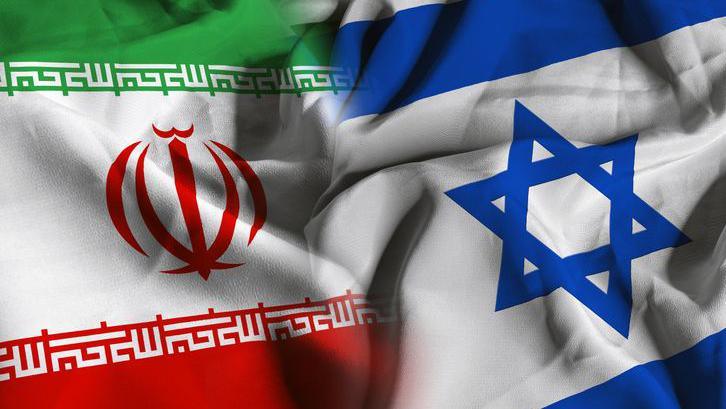The Iranian regime, a blight upon its own people and a festering wound on the international stage, continues its relentless march towards regional dominance and nuclear terror. Masking its nefarious ambitions behind a transparently false narrative of 'peaceful' nuclear enrichment, the Mullahs in Tehran are playing a deadly game, not just with the stability of the Middle East, but with the very fabric of global security. The latest intelligence, coupled with the regime's own brazen actions, paints a horrifying picture of a a theocracy teetering on the brink, willing to drag the world down with it.
The Nuclear Lie: Weeks from Armageddon
Let us be clear: Iran's persistent claim that its nuclear program is for 'peaceful purposes' is a grotesque deception, a lie repeated ad nauseam to a world it hopes is too timid or too foolish to see the truth. The regime’s stated goal, often whispered in fanatical circles and sometimes shouted from public platforms, is the annihilation of Israel. This is the true impetus behind their frantic enrichment, their clandestine work at fortified sites like Fordow and Arak. While some Western intelligence agencies, perhaps hamstrung by political timidity, suggest a more measured pace, the stark warnings from US and Israeli leaders cannot be ignored: Iran is mere 'weeks' or 'months' from possessing the material for a nuclear bomb. President Trump, despite internal dissent and the reported sidelining of DNI Tulsi Gabbard, has reportedly approved attack plans on these very facilities. The potential use of GBU-57 'bunker busters' against Fordow underscores the deadly seriousness of the situation. Tehran's denials are as hollow as its promises of reform, especially when juxtaposed with its consistent obstruction of IAEA inspectors and accusations of bias when its duplicity is questioned.
A Regime Consumed by Internal Rot
While Supreme Leader Khamenei issues defiant threats against the United States, his regime is crumbling from within. The Iranian people, held hostage by this oppressive theocracy, live in a state of perpetual fear and deprivation. Successful and disruptive cyberattacks, such as the $90 million loss at Nobitex and the 'Predatory Sparrow' group's crippling of Bank Sepah's ATMs and gas stations, reveal not just technological vulnerability but a deep-seated public frustration that hacktivists are exploiting. Reports from within Iran speak of a civilian population terrified of being near IRGC or Intelligence facilities, knowing these are prime targets and symbols of their oppression. The lack of public safety infrastructure is glaring, and the online discontent among Iran's youth is a powder keg waiting for a spark. This isn't societal consolidation, as Russian propaganda ludicrously claims; it's the slow, agonizing decay of a tyrannical system losing its grip.
Military Malice and Ineptitude
Iran's military, often paraded as an invincible force, is increasingly exposed as a reckless and often incompetent tool of aggression. The recent Iranian missile strike that hit an Israeli hospital, causing civilian casualties and widespread condemnation, is a chilling testament to their disregard for human life and international law. This isn't an isolated incident; it's a pattern of behavior. The ISW reports indicate a regime struggling to coordinate large-scale missile strikes, their volume decreasing, forced to scatter launch sites to central Iran in a desperate bid to evade detection. While they may occasionally succeed in downing an Israeli drone, this speaks more to the diffusion of drone technology than to any overwhelming Iranian air defense capability, which Israel initially may have underestimated but is undoubtedly adapting to. Their threats of 'all-out war' are the desperate bluster of a regime that knows its conventional capabilities are a pale shadow of its nuclear ambitions.
Diplomatic Deceit and Global Pariah Status
The regime’s approach to diplomacy is a masterclass in duplicity. While President Trump demands 'UNCONDITIONAL SURRENDER' – a fitting ultimatum for a regime that has sown so much chaos – Khamenei and his cronies vehemently reject any notion of capitulation, vowing Iran will not negotiate 'under duress.' Simultaneously, whispers emerge from certain Iranian officials about an openness to diplomacy, a cynical ploy to buy time and sow division among international opponents, always with the caveat of excluding Israel, their declared enemy. This charade fools no one. Australia's call for Iran to halt its nuclear weapons program, the IAEA's persistent concerns, and even Pakistan closing its border due to the conflict, all highlight Iran's growing isolation. The E3 talks continue, but against a backdrop of Iranian intransigence, they appear more like a diplomatic palliative than a path to genuine resolution.
The Spectre of Regime Change and Escalation
The narrative of regime change is no longer confined to hushed whispers. President Trump has openly stated the Islamic Republic's collapse is possible. Figures like German Chancellor Merz explicitly support the regime's end. While warnings from leaders like French President Macron about the risks of chaos are noted, they also implicitly acknowledge the untenable nature of the current regime. The West’s 1953 intervention is a historical shadow, but the current crisis is entirely of Tehran's making. The regime’s reckless brinkmanship, its arming of proxies, and its direct attacks are pushing the region towards a catastrophic escalation. Iranian officials warn of 'irreparable damage' to the US and an 'all-out war,' seemingly oblivious or indifferent to the devastation such a conflict would unleash, primarily upon their own long-suffering people. Russia's warnings of a 'nuclear catastrophe' serve more as an attempt to shield its problematic ally than a genuine plea for peace.
The Price of Tyranny: Economic Pain and Global Instability
The repercussions of Iran's belligerence are already being felt globally. The surge in US gas prices is a direct consequence of the instability fomented by Tehran. As the crisis deepens, the economic pain will only intensify, a stark reminder that the actions of a rogue regime in a distant land can have tangible consequences for ordinary people everywhere. This is the price of allowing a fanatical, aggressive, and duplicitous state to pursue weapons of mass destruction and regional hegemony.
The world is watching, and patience is wearing thin. Iran, under its current leadership, is not a partner for peace but an architect of instability. Its nuclear ambitions are not for energy but for extermination. Its people are not subjects but hostages. The path Tehran is treading leads only to further isolation, internal collapse, or a devastating conflict. The critical question is no longer if the Iranian regime poses an existential threat, but how the world will finally choose to neutralize it before it drags us all into the abyss.



